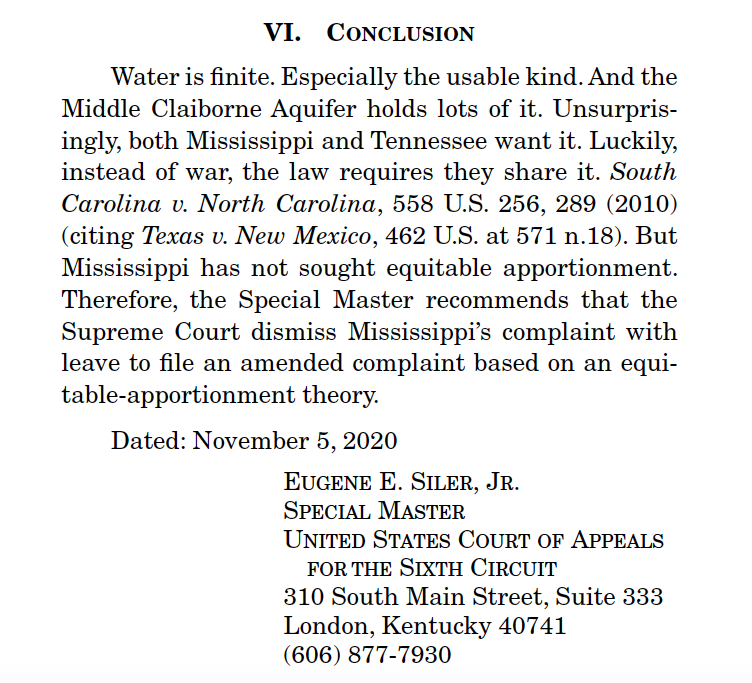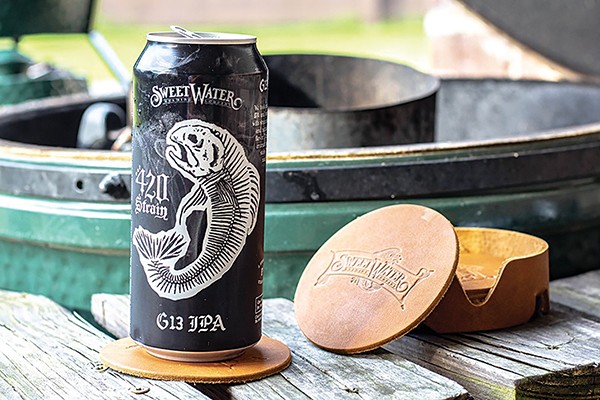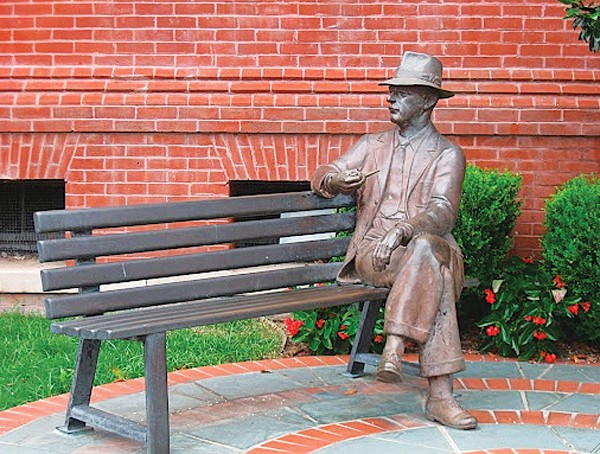The 13th year of the Oxford Film Festival marks the beginning of a new era for Mississippi’s premier film gathering. Since its inception in 2003, the festival had been run as an all-volunteer organization. But last year, executive director Molly Fergusson, operations director Michelle Emanuel, and hospitality director Diala Chaney decided to hang up their clipboards. The festival had gotten too big and needed a new infusion of support to continue.
“When the directors left, the community decided that it was important to continue,” new executive director Melanie Addington says. “The board of directors did some fund-raising to create a full-time position, and that also expanded our sponsorships so we could grow the festival. Basically, we doubled our sponsorships this year as everyone rallied around the idea of letting the festival continue.”
Addington takes over as the festival’s first full-time executive director after more than a decade of volunteering. “I’ve always been a fan of independent film, and I was really glad Oxford had something like this when I moved here. I liked getting involved, and I saw places that I could provide skills I had and help the festival grow. And then I just kept taking on more and more duties, as you do. It’s nice to be doing this full-time instead of on the weekends and instead of sleeping,” she says.
Food + Film
This year, the festival runs five days, beginning on Wednesday, February 17th. “It’s a special ticketed event, Food + Film, so you can eat what you’re seeing on the screen,” Addington says.
The first of six short films about food and drink at the festival’s opening night is director James Martin’s documentary The New Orleans Sazerac, tracing the history of the iconic regional cocktail that has captured the imagination of the current spirits revivalists. Using a number of interviews with Big Easy historians mixed with some careful photographic research and a little snazzy animation, Martin takes the audience all the way back to the dawn of the cocktail age in 1839, when apothecary Antoine Amédée Peychaud first mixed his family’s secret recipe of bitters with brandy, measuring portions with an egg cup known as a coquetier, from which we get the term “cocktail.” The film is detailed and informative, but brief enough that it doesn’t outstay its welcome, which means it will go down easy with one of its titular cocktails.
Other films at the opening-night event include Vish by Danny Klimetz, Oxford Canteen by Brett Mizelle and Heather Richie, and a pair of films about barbecue by filmmaker Joe York. “It’s a big eating and movie-watching festival,” Addington says.
Memphis Connections
Bluff City filmmakers will be out in force at this year’s festival. Friday night at 7:45 p.m. is the Mississippi premiere of The Keepers, Sara Kaye Larson and Joann Self Selvidge’s documentary about the people behind the scenes at the Memphis Zoo. It’s another chance for Mid-Southerners to see the film that won Best Documentary at the 2015 Indie Memphis Film Festival, playing to a pair of sold-out crowds.
Self Selvidge also codirected the documentary Viola: A Mother’s Story of Juvenile Justice, with Sarah Fleming. The moving short film is just one success story from what is planned to be a feature-length documentary about the Memphis juvenile justice system. Drew Smith’s charming short Snow Day, which, along with Viola, won special jury awards at Indie Memphis, will screen on Friday night, as will Edward Valibus’ music video for Faith Evans Ruch’s “Rock Me Slow,” which will compete in the music video bloc.

Syderek Watson, Marcus Hamilton, and Jose Joiner
This year’s Oxford Film Festival will also see the premiere of the first completed film funded by the Memphis Indie Grant program. G.B. Shannon’s short film proposal for Broke Dick Dog won the $5,000 competition in 2014. “The story that it originated from was actually a feature script,” Shannon says. “When the grant came around, I kind of pitched a truncated version of the feature script, which is a road trip movie about this guy who comes home from his mom’s funeral and finds out from a letter she gives him that he has two brothers. Her last wish is for them to track their father down and meet him and give him this letter.”
Shannon says truncating the concept from feature length to short helped refine and illuminate the story. The bulk of the action takes place at the ’50s-era offices of radio station WREC. “It’s on 240 around Frayser. I’d seen it for 20 years, and I always wanted to shoot something there. So when I decided the father was going to be a DJ, I thought oh, we gotta shoot it there. And they were open to it.”
Changing the father character to a radio DJ also changed the complexion of the cast. “I know more about classic soul and funk than I do oldies rock-and-roll, so I thought it needed to be a soul station. And I’m glad, because it broke me out of my comfort zone, and I got to audition people whom I had never worked with before.”
The all-black cast includes great performances from T.C. Sharpe, a veteran of three Craig Brewer films, Jose Joiner, Rosalyn Ross, Syderek Watson, and Marcus Hamilton. “Marcus had never been in anything before,” Shannon says. “He’d played a rapper in a Kroger commercial, but as for learning lines and stuff like that, he had done nothing. I needed somebody real, and I thought he nailed it.”
This will be Shannon’s fourth Oxford Film Festival entry, having won Best Short Film in 2013 with Fresh Skweezed. “They know how to do it right. The parties are great. Melanie’s fantastic. It’s just a fun festival that always has great films.”
Persistence of Memory
First-time filmmakers are often attracted to comedies, talky dramas, or low-budget horror films. Rarely has a first-timer tackled heady science fiction with as sure a hand as Claire Carré did in Embers, which makes its Mississippi debut on Friday at 8:30. As with all science fiction, it helps to have an original concept. The setup is familiar: A global plague has ended humanity’s reign upon the earth, but this is not a weaponized super-flu like The Stand or a zombie virus like The Walking Dead, but a transmissible neurological disease that resembles Alzheimer’s, robbing its victims of memory. An intertwined group of survivors roam the ruined landscape, including a couple, played by Jason Ritter and Iva Gocheva, who rediscover their love for each other anew every day. A silent child, played by Silvan Friedman, is separated from her father and thrown into a series of encounters that land her with James Robertson (Tucker Smallwood), a psychologist searching for a cure to the disease even as he himself is suffering from it. Meanwhile, Miranda (Greta Fernández) and her father (Roberto Cots) have been trapped in a high-tech bunker for nine years, trying to wait out the plague as they battle boredom and despair.

Greta Fernández in Embers
Embers‘ setting is carefully constructed. Imagine Christopher Nolan’s breakthrough film Memento expanded to encompass the entire world. Carré’s secret weapon is her sharp eye for locations, from entire abandoned neighborhoods in Gary, Indiana, to bomb shelters in Poland.
Embers makes a strong argument that it is our memory that makes us human. As one man, played by Matthew Goulish, wanders through a decrepit neighborhood, he struggles to understand how his malady has affected his perception of time, repeating the haunting refrain “Now is now, and here is here. And now is now…”
Guest Spots
The lineup of expert panels and discussions has tripled this year. “We used to have three. Now we have nine. And they’re all free, thanks to the Mississippi Humanities Council. You can do nothing but panels and have a full schedule all weekend,” Addington says.
The annual animation panel, which takes place on Sunday, brings back Adventure Time head writer and storyboard artist Kent Osborne, who will be joined by his fellow Adventure Time alumnus Jack Pendarvis; animator John Durbin from Moonbot Studios, who won an animation Oscar in 2011; and voice actor Susan Hickman, veteran of everything from MacGyver to Kiki’s Delivery Service.
And the festival will look to the future with the first presentation of immersive virtual reality (VR) experiences in the Mid-South. One of the VR films, Randal Kleiser’s Defrost, is fresh from its premiere at the Sundance Film Festival. “It’s a narrative story that they put you in the center of it. Actors, people whose faces you know, are acting at you. That’s different from what I had thought of as VR, which was more computer animation,” Addington says.
“We needed to focus on the ‘festival’ part of our name as much as the ‘film’ part of our name,” Addington says. “It’s got to be about the experience and the movies … So that’s a big priority for me, to create things that you wouldn’t be able to experience unless you were at this event.”


 Paul Embrey
Paul Embrey  Corey Owens/Greater Memphis Chamber
Corey Owens/Greater Memphis Chamber 
 U.S. Supreme Court
U.S. Supreme Court  U.S. Supreme Court
U.S. Supreme Court  U.S. Supreme Court
U.S. Supreme Court 
 SweetWater/Facebook
SweetWater/Facebook 


